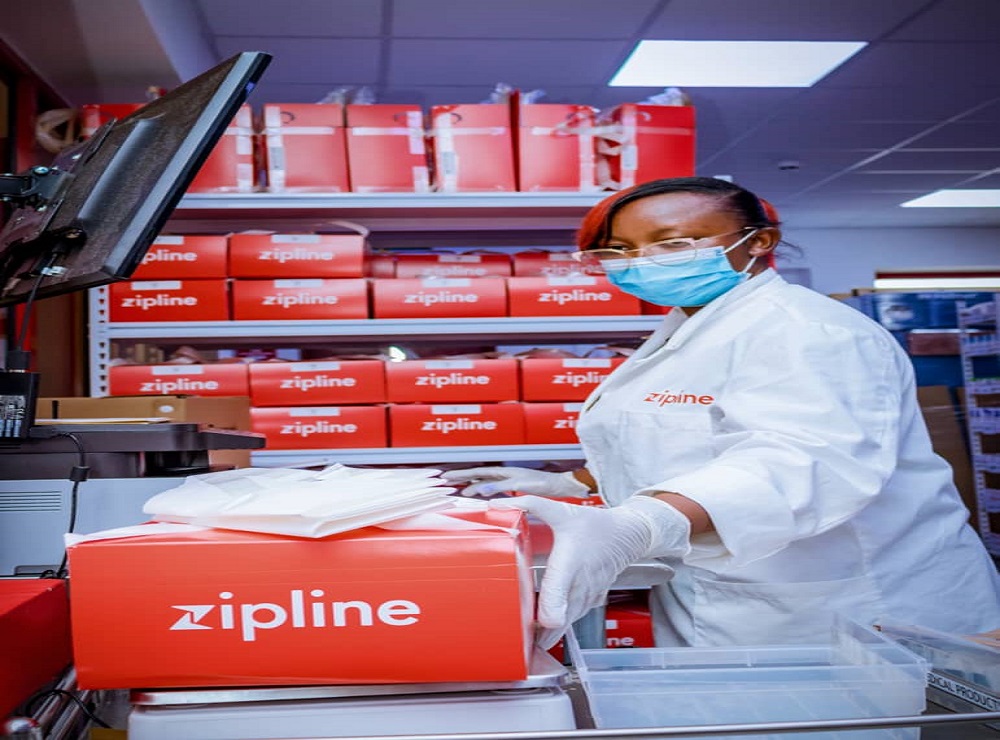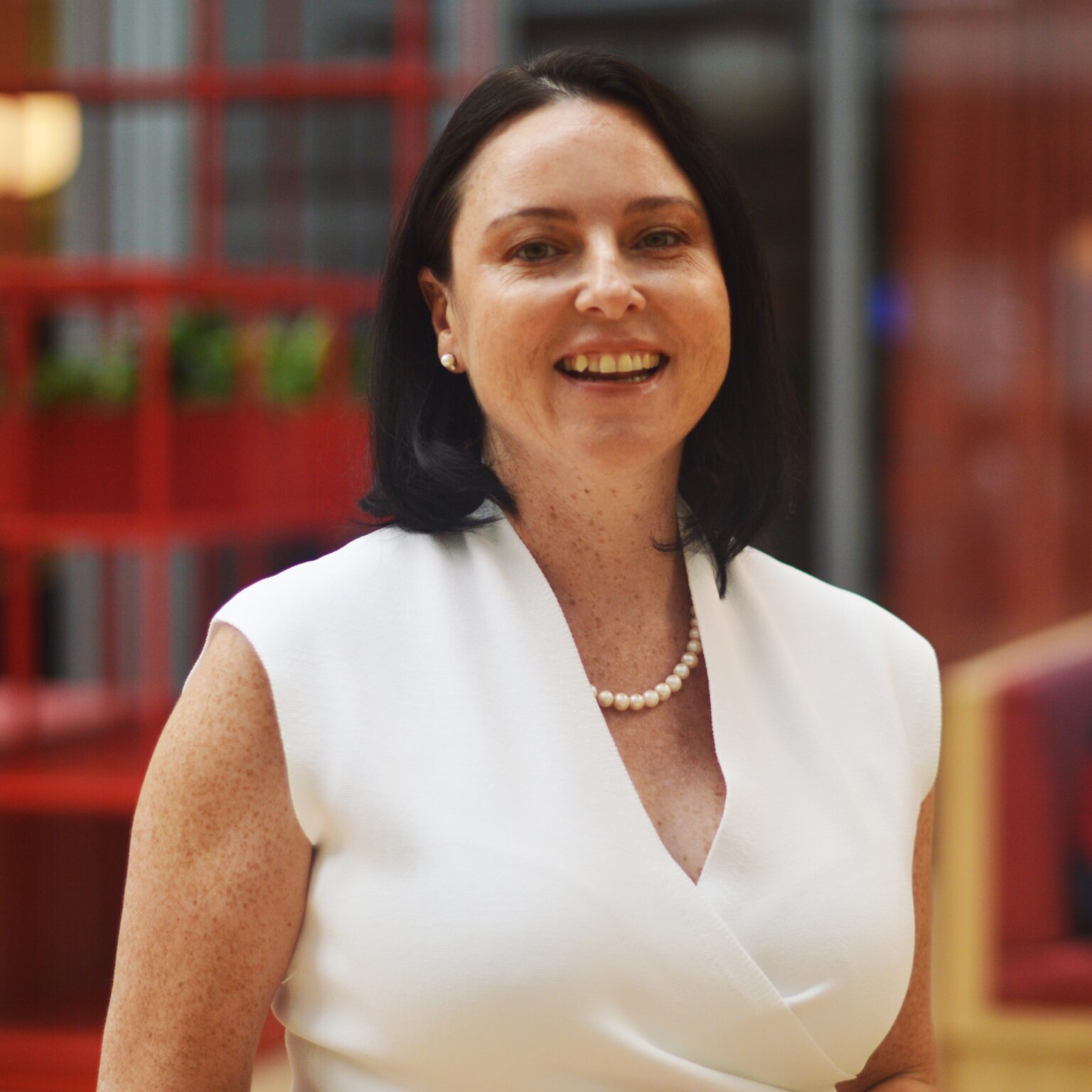Broadcasting
Zipline’s Instant Delivery, A Game-Changer in Medical Supply Chain

According to the World Health Organisation (WHO), nearly two billion people across the world lack reliable access to quality essential medical products such as blood and vaccines due to gaps in supply chains and poor infrastructure.

A functioning supply chain complete with procurement, appropriate warehousing, and end-to-end transportation, is critical to making sure that people have access to essential, quality medicine. Increasingly, drones or “unmanned aerial vehicles” (UAV) are being used to fill in key supply chain gaps, providing much-needed access to access to to medicine, medical supplies and vaccines.
By storing medicine, blood and other critical medical supplies and delivering them directly to health facilities, Zipline is helping the government of Ghana reduce wasted medication resulting from overstocking and expiration. Because health facilities can order on-demand, as needed, they no longer have to request large quantities of medicine from their national medical stores to make sure they have them in stock, ultimately resulting in over-ordering and expiration.
A District Director of Health in Ghana, Charles Kofi Azagba, recently said that “before the introduction of Zipline, [they] have been going through a lot of difficulties in getting medical and non-medical supplies to the various health facilities. However, with the coming of Zipline, [they] rarely run out of stock or even when [they] do, Zipline swiftly responds to them in less than 30-minutes”.
Recently Nigeria became the third African country to use Zipline’s drone delivery system, following national-scale operations in Ghana and Rwanda, with operations in Kenya and Cote d’Ivoire set to be launched later this year. Kaduna State, Nigeria has begun to procure medical commodities – vaccines, medicines, and blood – through the government supply chain and distribute them via the newly established Zipline distribution centre located at Pambegua. With Zipline’s autonomous drone delivery service, health facilities can receive products within 45 minutes or less, rather than several days when using traditional, complex procurement systems.
Nigeria and other developing countries often lack adequate supply, correct doses and affordable medication at their health centres. In some cases, health ministries set up semi-autonomous entities such as a National Level Medical Store and Regional Medical Stores, to purchase, store and distribute medicine and medical supplies to health centres, hospitals and dispensaries across the country.
Within the rural settings already burdened with poverty, high disease, and lack of adequate resources to deliver quality healthcare to the population, drug shortages and an inadequate number and skill-mix of healthcare providers are very common in rural health facilities.
Zipline’s technology has proved to be a valuable tool in assisting governments in achieving access to universal healthcare and will help the government of Kaduna in achieving this goal. A Zipline hub can send medical supplies to more than 500 health facilities within an 80km radius flying at about 110km/hour. Within the first week of operation in Kaduna state, the company delivered over a thousand medical items to several health facilities.
Kaduna is just the beginning of the government’s’ partnership with Zipline. They have already announced partnerships with the Cross River and Bayelsa states, with an aim to begin operations before the end of 2022, serving thousands of health facilities across Nigeria.
Broadcasting
MultiChoice Nigeria Slashes Decoder Price by 50 Percent, Offers Free Upgrades

MultiChoice Nigeria has slashed the price of its DStv decoder from N20,000 to N10,000, representing a 50 percent drop, in a aim at attracting attract more customers and curb declining subscriptions.

The campaign, titled “We’ve Got You,” was launched on June 16 and will continue until July 31.
Also, as part of its efforts to ease economic pressure on households and improve access to digital TV services, the campaign offers a free upgrade for both active and returning customers.
Speaking on the campaign, John Ugbe, chief executive officer (CEO) of MultiChoice Nigeria, said the initiative reflects the company’s commitment to rewarding loyalty and enhancing daily viewing experiences.
“We want to ensure our customers feel appreciated and have access to the best entertainment every day,” Ugbe said.
“The ‘We’veGot You’ campaign is about making premium content more accessible and showing that DStv offers something for everyone, not just football fans.
“By repositioning itself as a platform for daily value, DStv aims to encourage content discovery across a wider array of genres, including movies, drama, kids’ programming, and news.
“This means more channels, more shows, and more reasons to tune in every day.”
The development comes amid MultiChoice Nigeria’s legal battle with the Federal Competition and Consumer Protection Commission (FCCPC) over price hike.
Broadcasting
Qatar Airways Top Brass Face Court Action in Nigeria Over FCCPC Charges

Federal Competition and Consumer Protection Commission (FCCPC) will, on Oct. 7, arraigned the Chief Executive Officer (CEO) of Qatar Airways, Mr Temi Birdzell, alongside the company and its top officers, over allegations bordering on breach of FCCPC Act, 2018.

The defendants will be arraigned before Justice James Omotosho of the Federal High Court in Abuja.
Others to be arraigned with Birdzell are Stella Ihediwa, the Account Manager of the airline; Kennedy Chirchir, the Country Manager and Eva Ojeje, who is the Sales Manager of the company.
Although the arraignment was scheduled for Tuesday, the matter could not proceed.
Upon resumed hearing, none of the defendants was in court.
When the matter was called on Tuesday, none of the defendants was in court due to improper service of the court documents, including the hearing notice, on them.
FCCPC.’s lawyer, Chizenum Nsitem, told the court of their inability to serve four of the defendants, although the company was served.
Nsitem then sought an adjournment to enable them do the needful and the judge adjourned the matter until Oct. 7 for the defendants to take their plea.
The News Agency of Nigeria (NAN) reports that the commission, in the charge marked: FHC/ABJ/CR/200/2025, dragged Qatar Airways, Birdzell, Ihediwa, Chirchir and Ojeje to court as 1st to 5th defendants respectively.
FCCPC, in the application dated May 26 but filed May 27, had preferred a two-count charge against the defendants.
The defendants were alleged to have failed to appear before FCCPC in compliance with a lawful summons of the commission dated Sept. 6, 2024, and thereby committed an offence contrary to and punishable under Section 33 (3) of the Federal Competition and Consumer Protection (FCCPC) Act, 2018.
They were also accused to have on Sept. 18, 2024, intentionally withheld the production of documents in compliance wth a lawful summons of the commission, thereby committed an offence contrary to and punishable under Section 111 of FCCP Act, 2018.
In count three, they were alleged to have on Sept. 18, 2024, engaged in the contravention of the consumer rights, thereby committed an offence contrary to Section 124(1) and punishable under Section 155 of the same Act.
Broadcasting
Global recognition for African communications agency as Irvine Partners CEO joins UK PR power list

Irvine Partners (IP) is proud to announce that its CEO, Rachel Irvine, has been named to the prestigious Women in PR 40 over 40 power list in the United Kingdom.

Rachel-Irvine-CEO-Irvine-Partners
This recognition celebrates women in leadership who have demonstrated exceptional leadership, driven change, and championed effective staffing strategies within the industry.
“This list celebrates the vision and lasting impact of women who continue to lead with purpose,” says Rachel Irvine.
The honour not only spotlights Rachel Irvine’s achievements but also underscores the strategic advantage of Irvine Partners’ approach to assembling the most effective teams.
This emphasis on broad perspectives and a range of experiences has propelled the agency from its South African roots to international acclaim, with wholly owned offices now thriving in the UK, Germany, Kenya, Nigeria and Ghana.
The proudly woman-owned and led agency gets that securing the right talent, regardless of background, is a direct business advantage. Three in every four of its employees are women, with people of colour comprising 60% of its global staff.
IP cultivates a workplace where varied expertise is valued. Its talent strategy allows its teams to bring unique insights to complex client challenges that can only be navigated with a nuanced understanding of audiences across its six regions.
IP’s emphasis on its people and culture is crucial to how the agency maintains long-term client relationships with global industry giants such as Google, Spotify, Uber, TikTok and Salesforce.
“Good ideas don’t carry passports,” Irvine adds. “Our global success isn’t just about market expansion; it’s a testament to the power of diverse perspectives and a culture where entrepreneurial spirit thrives, consistent excellence is expected, and everyone’s potential is actively grown.
“As we’ve grown from Woodstock in Cape Town to Westminster, London, we’ve built an environment where every team member is actively coached and cultivated to excel. This ethos isn’t just a moral compass; it’s our strategic asset.”
The Women in PR 40 over 40 power list addresses ageism in the PR industry, a bias that research shows disproportionately affects women from the age of 40 onwards. Rachel Irvine’s inclusion is a strong counter to this trend, highlighting the significant value experienced professionals bring to the industry. “Grumbling about a stacked deck seldom yields results,” advises Irvine.
“If you’re in a place that doesn’t serve or support you, leave. Back yourself and find your tribe.”

 Telecom2 days ago
Telecom2 days agoLebara, New Operator Enters Nigerian Telecom Arena, Sells Minutes, Not Airtime

 General News1 day ago
General News1 day agoOpenAI Unveils New AI Agent for Software Developers

 E-Business2 days ago
E-Business2 days agoOver 7m Streaming Accounts’ Credentials were Leaked in 2024 – Report

 E-Financial2 days ago
E-Financial2 days agoFidelity Bank Uplifts Old People’s Home with Essential Items Donation

 E-Financial2 days ago
E-Financial2 days agoS&P Global Ratings Downgrades Ecobank Nigeria’s Credit Rating to CCC-, Outlook Negative

 Telecom2 days ago
Telecom2 days agoPIN Pushes for Equitable Digital Governance at World Internet Forum

 Telecom1 day ago
Telecom1 day ago15 African Startups Using AI Selected for Google Accelerator Cohort 9

 E-Financial2 days ago
E-Financial2 days agoEFCC Drags Cititrust to Court over Unreported ₦200mTransfers




























